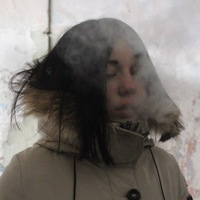
Различия крупозной и очаговой пневмонии
 0
0
 0
0
Ответы на вопрос
 Внимание! Ответы на вопросы дают живые люди. Они могут содержать ошибочную информацию, заблуждения, а также ответы могут быть сгенерированы нейросетями. Будьте внимательны. Если вы уверены, что ответ неверный, нажмите кнопку "Пожаловаться" под ответом.
Внимание! Ответы на вопросы дают живые люди. Они могут содержать ошибочную информацию, заблуждения, а также ответы могут быть сгенерированы нейросетями. Будьте внимательны. Если вы уверены, что ответ неверный, нажмите кнопку "Пожаловаться" под ответом.

Ответ:
При очаговой пневмонии поражаются преимущественно нижние отделы легких (чаще справа). Крупозная пневмония характеризуется поражением как минимум доли легкого с обязательным вовлечением в процесс плевры. Заболевание при этом наоборот начинается остро с потрясающего озноба и резкого повышения температуры тела до 39-40°C.
 0
0
 0
0

Differences between Community-Acquired Pneumonia (CAP) and Hospital-Acquired Pneumonia (HAP)
Community-Acquired Pneumonia (CAP) and Hospital-Acquired Pneumonia (HAP) are two different types of pneumonia that have distinct characteristics. Here are the key differences between them:
1. Definition and Acquisition: - Community-Acquired Pneumonia (CAP): CAP refers to pneumonia that is acquired outside of healthcare facilities, such as in the community or at home. It is typically caused by common respiratory pathogens, including bacteria, viruses, and fungi. - Hospital-Acquired Pneumonia (HAP): HAP, also known as nosocomial pneumonia, is acquired during a hospital stay or within 48 hours after discharge. It is usually caused by multidrug-resistant bacteria and is associated with a higher risk of complications and mortality compared to CAP.
2. Risk Factors: - Community-Acquired Pneumonia (CAP): Risk factors for CAP include advanced age, smoking, chronic lung disease, immunosuppression, and certain comorbidities such as diabetes or heart disease. - Hospital-Acquired Pneumonia (HAP): HAP is more likely to occur in patients who are hospitalized for an extended period, have undergone invasive procedures, are on mechanical ventilation, or have compromised immune systems.
3. Causative Organisms: - Community-Acquired Pneumonia (CAP): CAP can be caused by a variety of pathogens, including Streptococcus pneumoniae, Haemophilus influenzae, Mycoplasma pneumoniae, Chlamydophila pneumoniae, and respiratory viruses such as influenza and respiratory syncytial virus (RSV). - Hospital-Acquired Pneumonia (HAP): HAP is commonly caused by multidrug-resistant bacteria, such as methicillin-resistant Staphylococcus aureus (MRSA), Pseudomonas aeruginosa, Klebsiella pneumoniae, and Acinetobacter baumannii.
4. Clinical Presentation: - Community-Acquired Pneumonia (CAP): CAP typically presents with symptoms such as cough, fever, chest pain, shortness of breath, and sputum production. The severity of symptoms can vary depending on the causative organism and the patient's overall health. - Hospital-Acquired Pneumonia (HAP): HAP may present with similar symptoms as CAP, but it is often associated with more severe illness and complications due to the presence of drug-resistant bacteria and underlying health conditions of hospitalized patients.
5. Treatment and Management: - Community-Acquired Pneumonia (CAP): The treatment of CAP involves empirical antibiotic therapy based on the severity of the illness and the presence of risk factors for drug-resistant pathogens. The choice of antibiotics is guided by local guidelines and may include agents such as macrolides, fluoroquinolones, or beta-lactam antibiotics. - Hospital-Acquired Pneumonia (HAP): HAP requires broader-spectrum antibiotics due to the higher likelihood of drug-resistant bacteria. The choice of antibiotics is guided by local resistance patterns and may include agents such as carbapenems, vancomycin, or combination therapy.
It is important to note that the information provided above is based on general knowledge about CAP and HAP. For specific medical advice or information, it is always recommended to consult with a healthcare professional.
 0
0
 0
0
Похожие вопросы
Топ вопросов за вчера в категории Биология
Последние заданные вопросы в категории Биология
-
Математика
-
Литература
-
Алгебра
-
Русский язык
-
Геометрия
-
Английский язык
-
Химия
-
Физика
-
Биология
-
Другие предметы
-
История
-
Обществознание
-
Окружающий мир
-
География
-
Українська мова
-
Информатика
-
Українська література
-
Қазақ тiлi
-
Экономика
-
Музыка
-
Право
-
Беларуская мова
-
Французский язык
-
Немецкий язык
-
МХК
-
ОБЖ
-
Психология
-
Физкультура и спорт
-
Астрономия
-
Кыргыз тили
-
Оʻzbek tili
























